PRAIDICT USE CASE
EXPAND YOUR MARKETING MIX WITH PRAIDICT

WHICH BUDGETS FOR WHICH CAMPAIGN?
COMMON PROBLEMS
- High cost
- Poor targeting
- Low ROI

DATA-DRIVEN, MARKET-ORIENTED MARKETING WITH PRAIDIC

PRAIDICT PROVIDES ANSWERS
- When are which topics, brands and products in demand?
- Through which channel are they in demand?
- What questions do customers and interested parties have?
- Where do customers and interested parties end up?
- Who are competitors and what do they offer?
- What budget should I use and when?
PRAIDICT SOLVES PROBLEMS
- Increased sales through tailor-made offers
- Improved budget distribution and less dispersion
- Easy benchmarking to the competition
- Massive increase in efficiency in marketing and sales
- Improved understanding of the target group
- Increased customer satisfaction and loyalty
- In a nutshell: more reach, more customers
STEP 1
WHAT ARE PEOPLE INTERESTED IN?
WHAT IS THE DEMAND?
PRAIDICT identifies people’s actual demand. What questions, what wishes, what problems do they have? And specifically for marketing: What questions do users have about a topic or product? What is relevant for the purchase? In the example on the topic of cordless screwdrivers, it becomes apparent that test reports in particular play a major role.
WHAT ARE THE BENEFITS OF THIS KNOWLEDGE?
By looking at demand, marketing measures can be precisely aligned with people’s demands. Instead of promoting products on gut instinct and in this example only focusing on a particularly low price (which only has a third of the demand compared to test reports), PRAIDICT reveals which topics are genuinely interesting and should be addressed.
- Which topics should be in the marketing plan?
- How heavily should they be advertised relative to each other?
Cordless screwdriver market overview
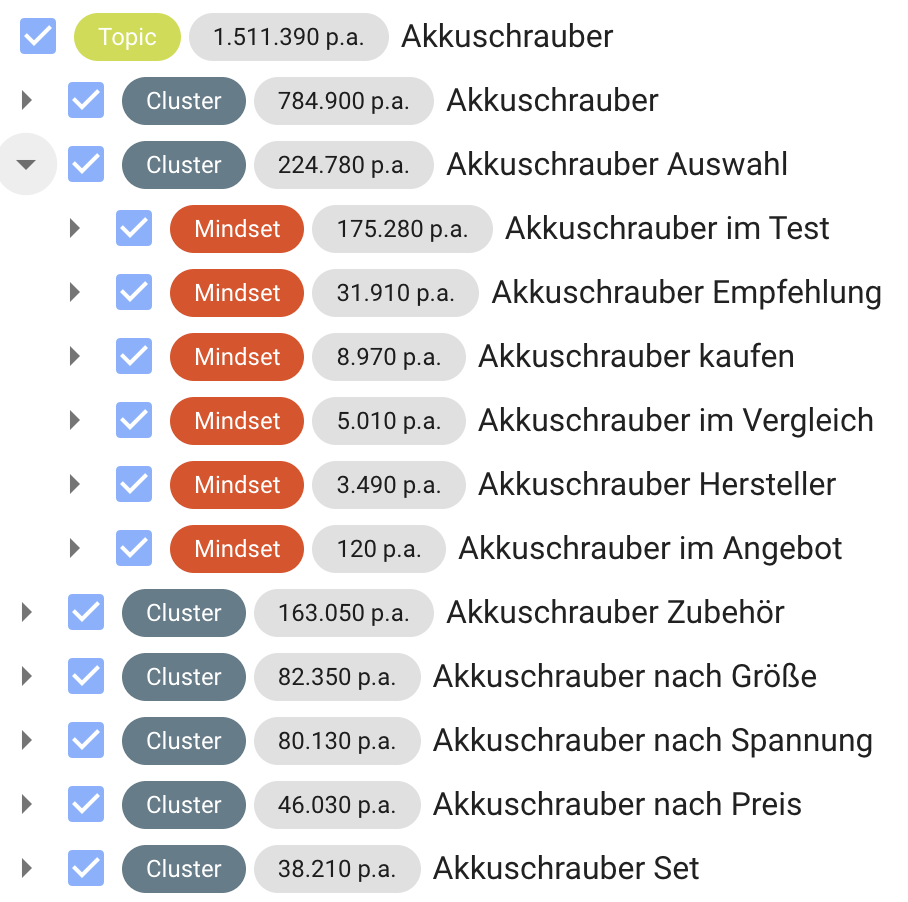
Cordless screwdriver channel recommendation
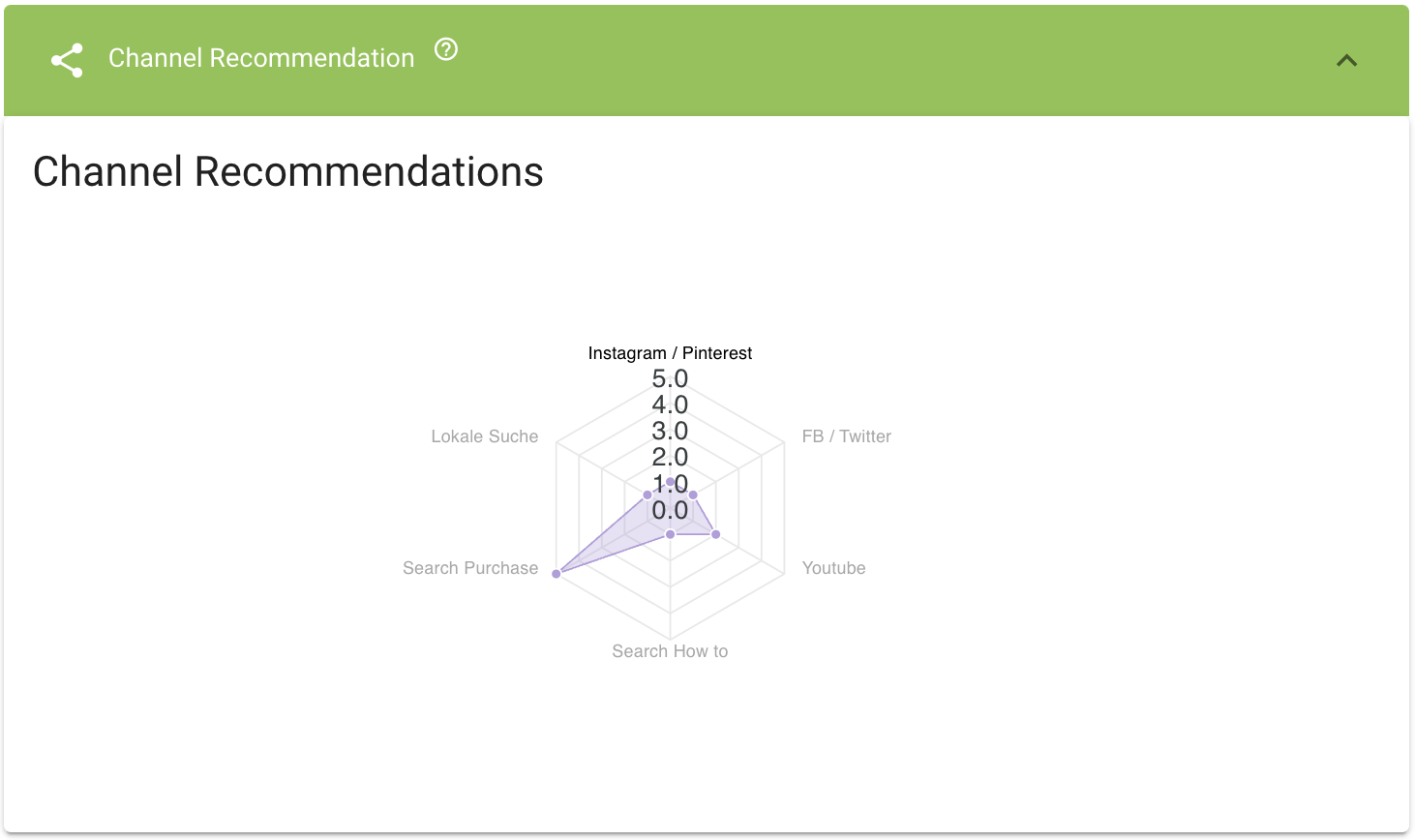
WHERE DO THEY LOOK FOR THEM?
Knowing which topics are in demand is essential for developing the best target group approach. This is the only approach to develop messages and content that truly reaches people. It is even better to identify the channel on which potential customers are looking for the respective solution.
With Channel Recommendation, PRAIDICT highlights the channel through which the target group should be addressed with the respective topic. The picture for the cordless screwdriver market shows that, above all, purchasing channels play a major role. However, video and social media platforms such as YouTube and Facebook are also relevant.
- Which channel should I advertise on?
- How do I distribute my budget across the different channels?
WHEN DO THEY LOOK FOR IT?
Perhaps the most important question for successful marketing is “when”. In many cases, there are recurring seasonalities in which people demand certain products. So it makes a huge difference in which month a particular campaign is rolled out.
With the Seasonality Data, PRAIDICT highlights which seasonalities apply to which topic and provides marketing recommendations. The example for cordless screwdrivers demonstrates: There are two annual peaks. On the one hand, the demand grows during the spring months of March, April, May; on the other hand, there is a surge in November. Derived from this, this implies that customers want to start handicraft projects especially during spring and hope for a good Black Friday offer in November. Instead of running large campaigns in the summer months or especially early after the turn of the year, PRAIDICT shows which is the best time.
- When should I launch my campaigns?
- How long should they run and when should they end?
Cordless screwdriver seasonality
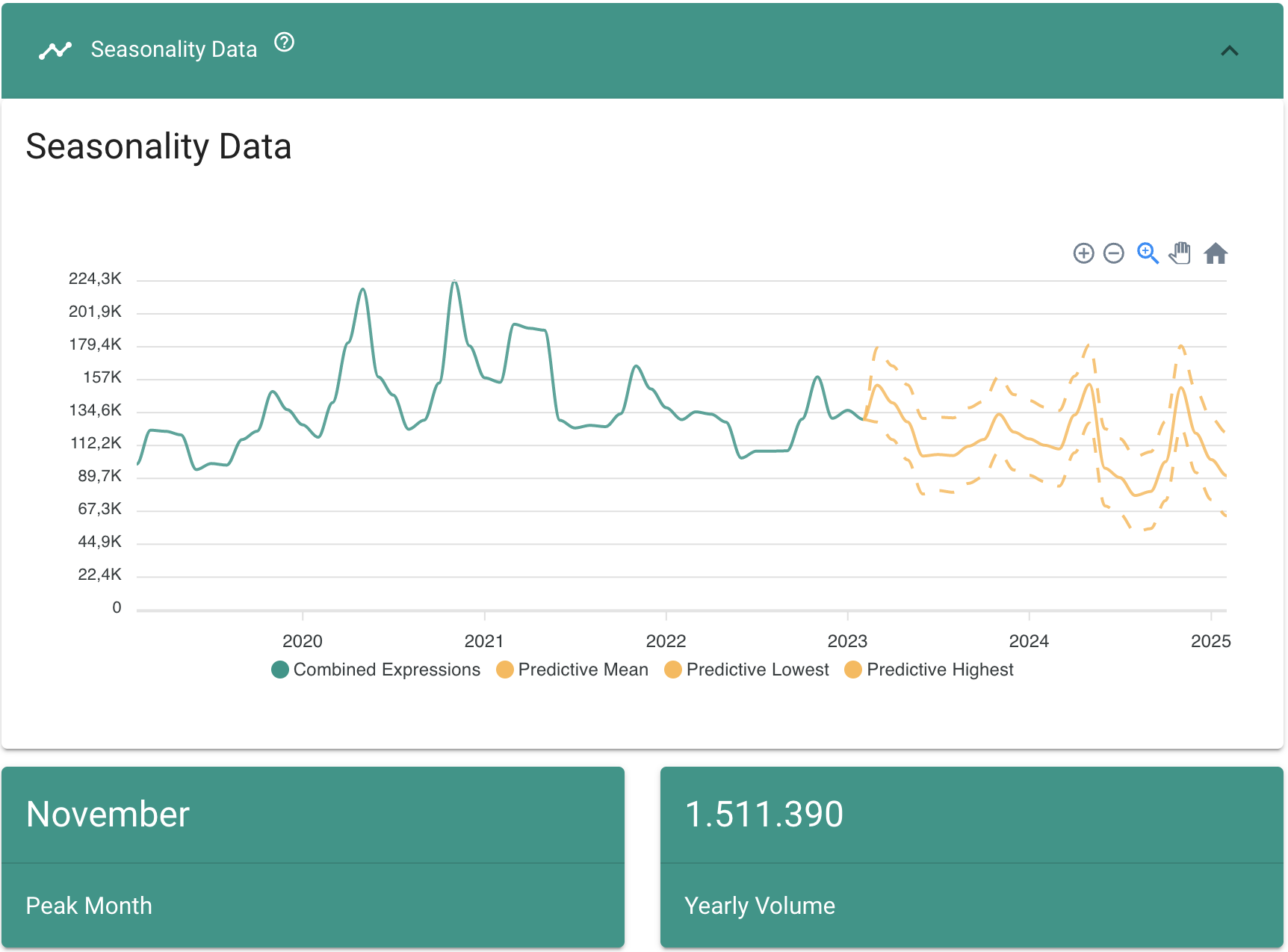
Competitors in the cordless screwdriver market
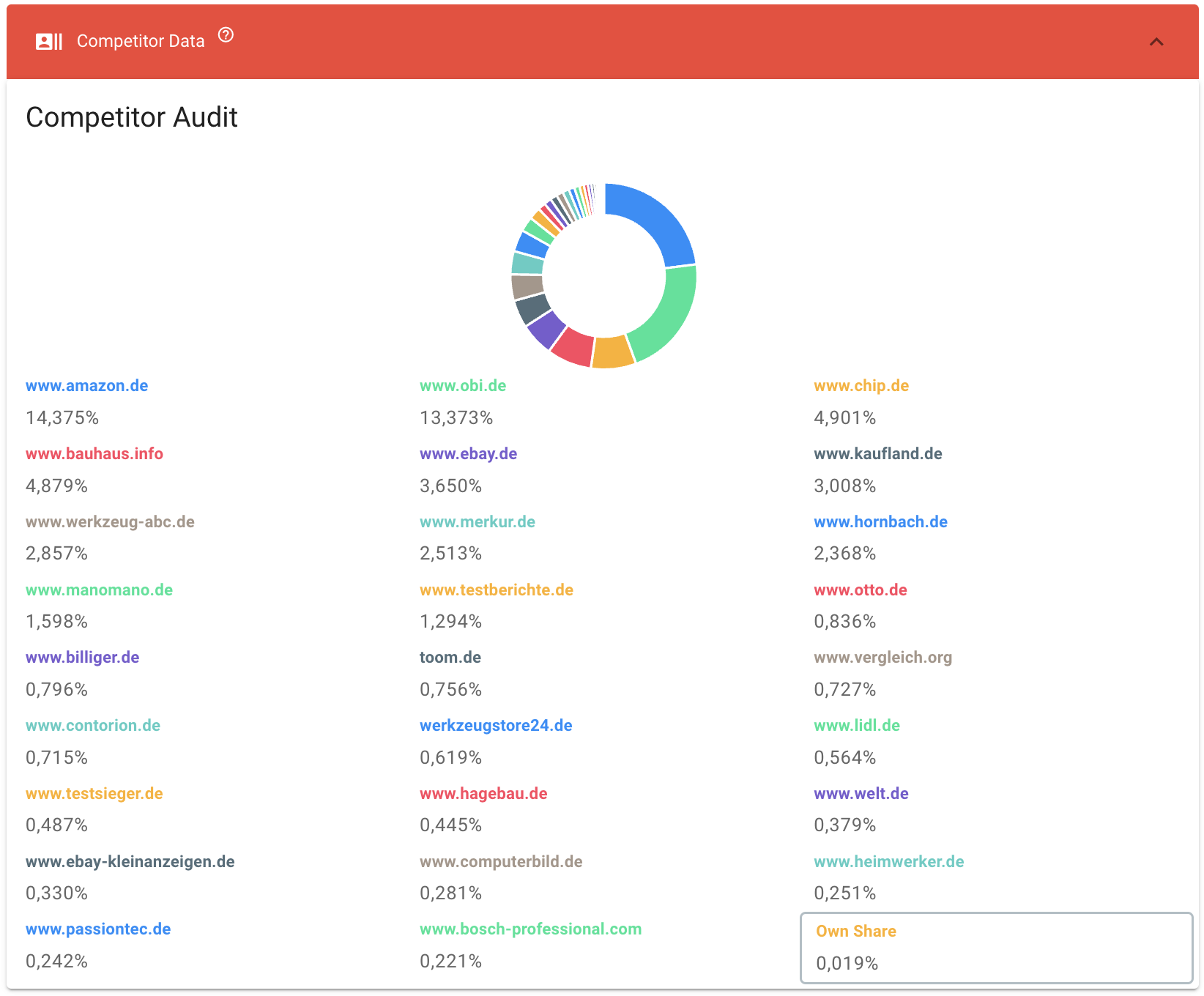
WHAT IS THE COMPETITION DOING?
To focus purely on market demand and one’s own supply is too short-sighted. It also requires a look at other market participants who advertise to the same target group. PRAIDICT highlights which player has already been successful with which measures on which topic. This assists with benchmarking and the further development of one’s own marketing measures.
In this example, PRAIDICT demonstrates which digital competitors are active in the cordless screwdriver market. The well-known players such as Amazon, OBI, Bauhaus and Hornbach are quickly identified.
However, it is particularly interesting that Chip.de is in 4th place and also 7th place with werkzeug-abc.de no other competitor is far ahead. One can see in the data that there is a Affiliate partnership it would make sense, as these two websites have a high reach especially for the topic of cordless screwdrivers.
- Who are my competitors?
- What measures are they taking?
- ho is a potential partner / affiliate?
DEVELOP MEASURES
HOW DO I APPROACH THE CUSTOMER?
The ideal approach is in itself a fine-tuning of a marketing campaign. Nevertheless, it is the core of my message. What do I say? How do I say it? In what form can this information, the advantages and reasons for a purchase be conveyed in the best possible way? PRAIDICT provides a solution to this problem as well:
With its integrated CONTENTSCORING, PRAIDICT has a further module that supports the creation of optimal content; precisely these texts and messages for the communication of marketing measures.
As shown in the figure, the content of the text is checked for people’s demand and psychologically optimized so that the reader can absorb the information in the best possible way.
- What questions do I need to address?
- How should I formulate my answers?
- How do I achieve the most conversions possible?
Content creation with CONTENTSCORING
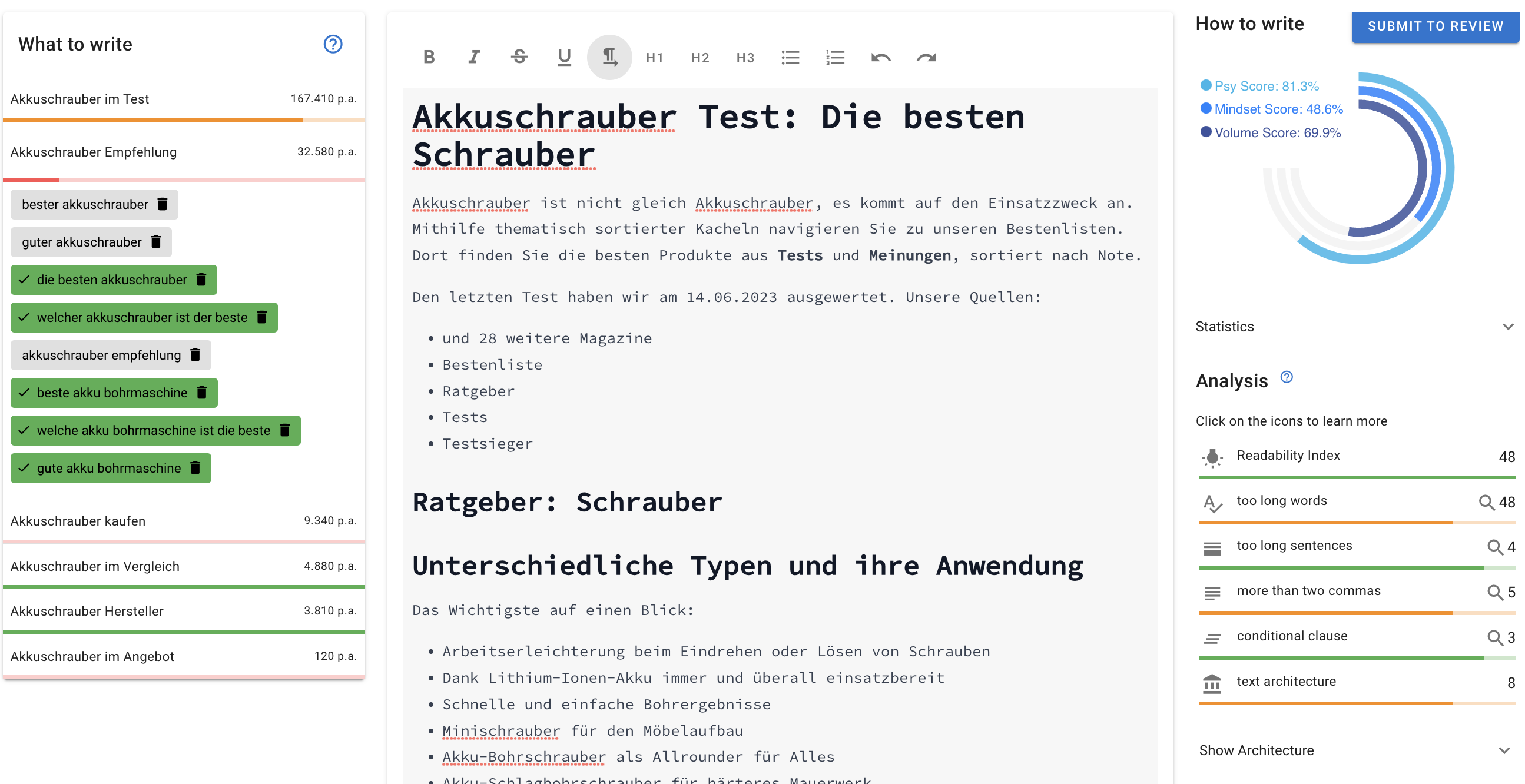
THE CONNECTION WITH PRAIDICT ANALYTICS
HOW DO I BENEFIT FROM INTERNAL DATA?
The market observation is particularly interesting as it represents the real demand of the target group. Nevertheless, each company has its own individual characteristics that are essential for a well-founded consideration.
The PRAIDICT ANALYTICS platform allows complex statistical models to be used to determine well-founded analyses with internal metrics about one’s own marketing measures.
- How successful were past measures?
- What were the factors for success?
- How should future measures be structured?
Comparison of different model approaches
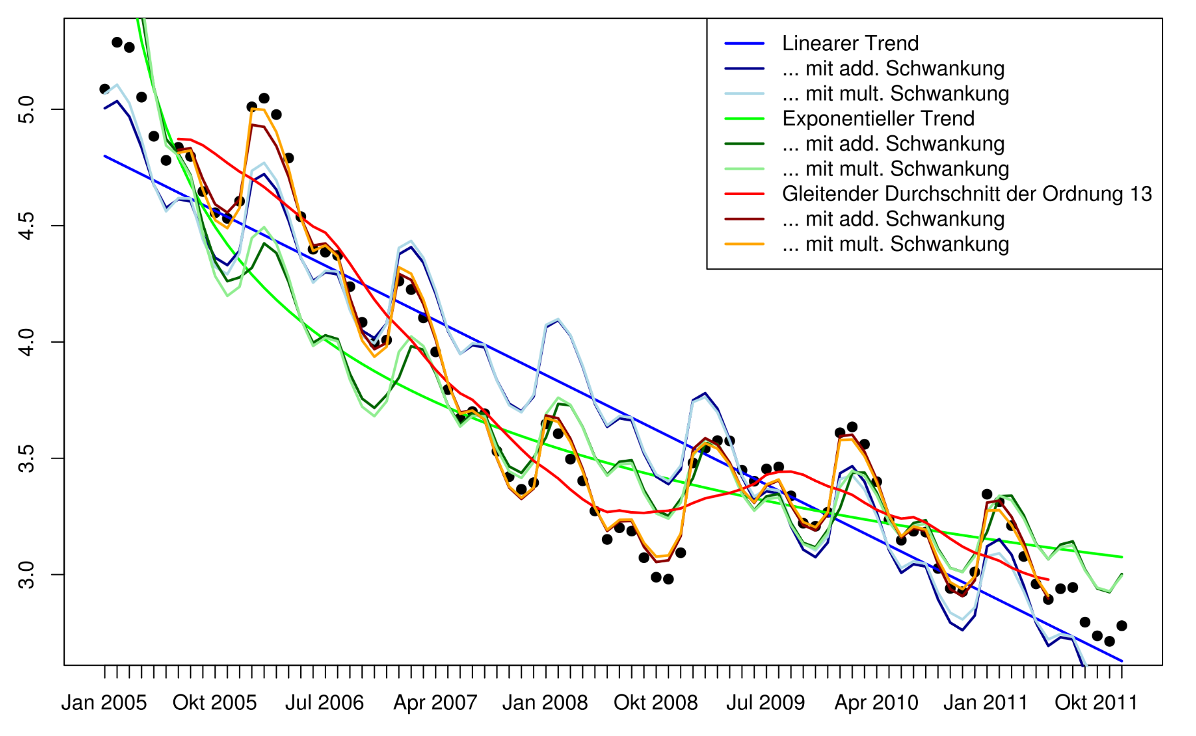
Competitors in the carpet market
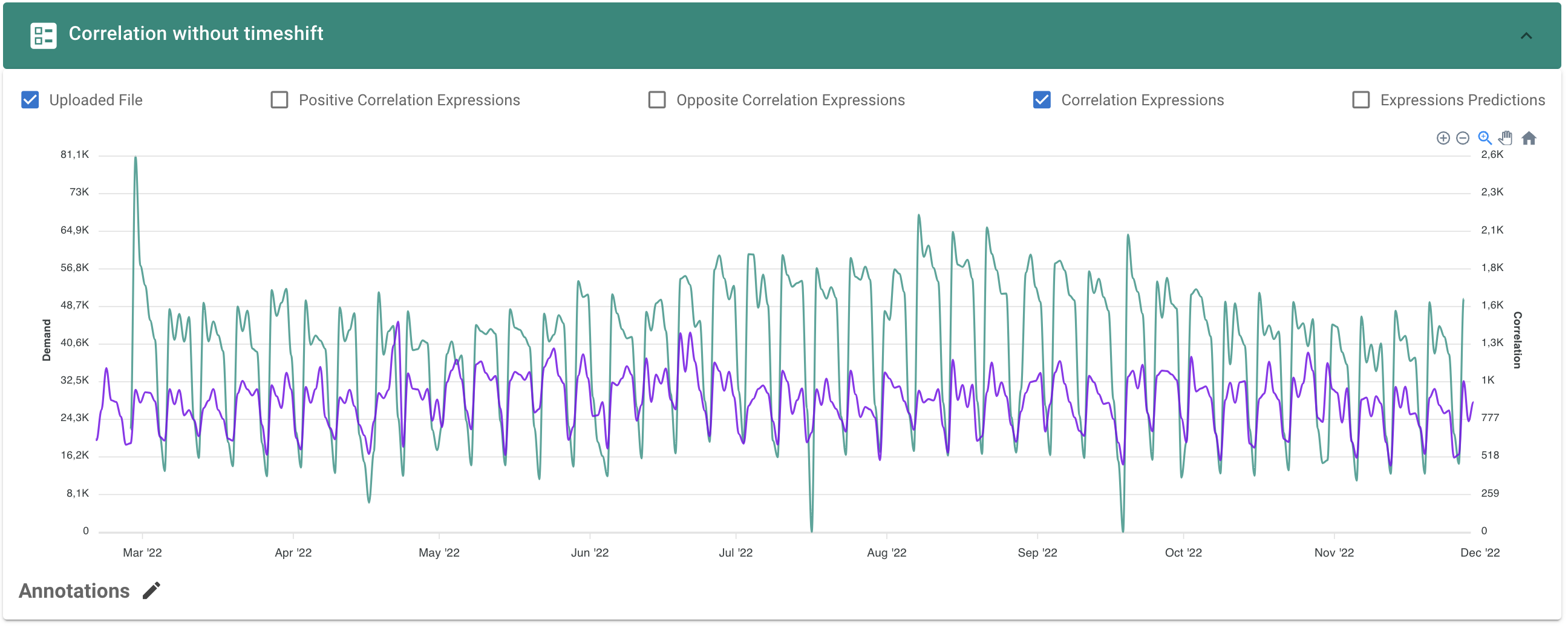
THE SYMBIOSIS OF INTERNAL AND EXTERNAL DATA
The linked view of internal and market data is particularly interesting. How do they relate to one another? What correlations or causalities can be derived? The PRAIDICT correlation analysis shows precisely this connection and provides recommendations for future measures. This results in the best possible combination of external demand, competitive analysis and past internal analysis for the most successful marketing measures.
- How are internal metrics and market data related?
- How can I proceed even more effectively?

